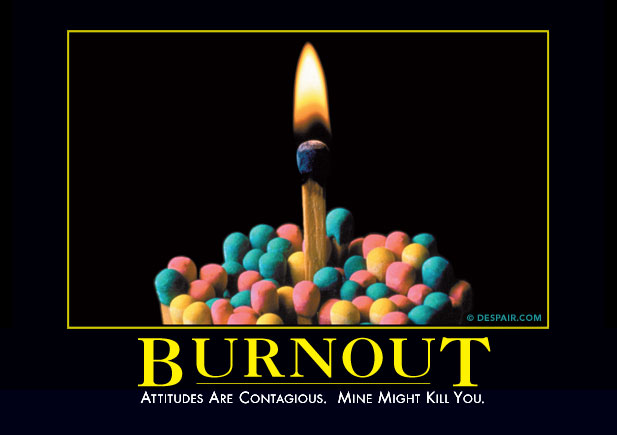
Burnout tends to hit idealists. People like you, who want have a meaningful job, while making some kind of contribution to this messed-up planet. Staff within NGOs, UN agencies, small community-based organisations, are at risk of burnout. Here’s a thought:
‘The most effective way to prevent and treat burnout is through sound organizational processes rather than individual treatment plans. While there are certainly individual aspects to burnout, organizations have considerable ability to create working environments that mitigate impact on individuals and even enhance thriving in challenging environments. The greatest puzzle that I have is the reasons why strongly ethical organizations dedicated to the care of others, are unable and/or unwilling to provide the same degree of support to their own staff. It is a great mystery to me’ (from John Fawcett, New Tactics).
I couldn’t have said it better myself.
Burnout gets lots of press, but too often it’s seen as a ‘stress issue’. Lower the stress level and burnout will magically disappear. Wrong. I say: make the job meaningful and give appreciation and people will work as much as it’s needed without burning out.
The Davos Open Forum dedicated time to discuss the devastating effects of burnout on employees, and offering ideas for personal and organisational solutions – a very simple one is to develop ‘the ability to pay attention to oneself’. In other words, mindfulness.
You don’t need a team of psychologists to prevent burnout. But you do need a caring and learning work environment. And probably you also need to stop trying to be all things to all people, and start being satisfied with what you have done, rather than with what you haven’t done.
[youtube=http://www.youtube.com/watch?v=77Fy7kKHAfA]
***
Photo credit: http://www.despair.com/burnout.html

